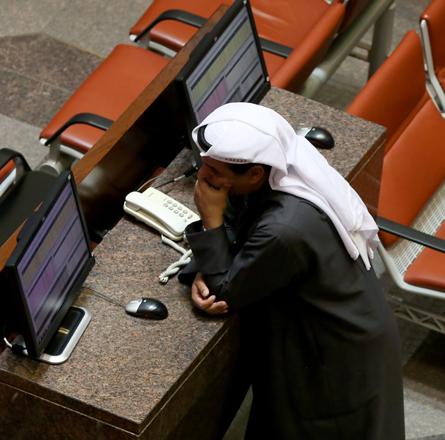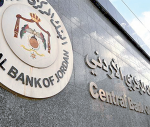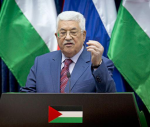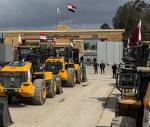You are here
Gulf stocks dive over low oil prices, geopolitics
By AFP - Jan 01,2016 - Last updated at Jan 01,2016
KUWAIT CITY — Stock markets in the energy-rich Gulf states ended 2015 in negative territory on Thursday, following a massive decline in oil prices and regional turmoil.
The Saudi stock market, the largest in the region, led the slide by shedding 17 per cent in 2015 followed by Dubai which dipped 16.5 per cent.
The market value of the seven bourses dropped by $110 billion to $930 billion in 2015.
Gulf Cooperation Council (GCC) states were forced to cut back this year after oil prices fell by more than 60 per cent since mid-2014 to below $40 a barrel.
GCC nations Bahrain, Kuwait, Oman, Qatar, Saudi Arabia and the United Arab Emirates all depend on oil for more than 70 per cent of their revenues.
"The persistent decline in oil prices, though expected, hit the domestic economies very hard," M.R. Raghu, head of research at Kuwait Financial Centre Markaz, said. "It negatively affected spending and private investors."
"Stock markets were also impacted by geopolitical factors which pushed investor confidence down," he added.
The Saudi-led military intervention against Iran-backed Houthi rebels in Yemen, conflicts in Iraq, Syria and Libya, and attacks by the Daesh group all caused instability in the Gulf states.
The Chinese slowdown and the hike in US and domestic interest rates also fuelled the slide, Raghu continued, with most losses taking place in the second half of the year.
Trading was highly volatile on most bourses, which dropped to multi-year lows.
And there is no cause for optimism for next year, Raghu noted.
"2016 will be a very challenging year," he indicated. "Nobody is hopeful of any recovery in oil prices, which are expected to remain below $50 a barrel, and corporate earnings are expected to be flat."
The Saudi Tadawul All-Shares Index (TASI), the largest bourse in the region, shed 17.06 per cent at 6,911.76 points, dropping for the second year in a row.
During December, the TASI dropped to a three-year low, despite new rules allowing foreign institutions to trade directly on the Saudi bourse.
The market was pulled down by the leading petrochemicals sector, which dipped 27 per cent. Most of the remaining 15 sectors also dropped.
The Dubai Financial Market Index posted its first annual loss after four years of sustained gains, ending the year down 16.5 per cent at 3,151.00 points.
The Abu Dhabi Securities Exchange was the best performer among the Gulf bourses, but still shed 4.5 per cent to finish the year on 4,307.3 points.
The Qatar Exchange, the second largest in the Gulf, fluctuated sharply during the year to close at 10,429.4 points, down 15.1 per cent.
The Kuwait Stock Exchange dropped 14.1 per cent to close on 5,615.12 points, after dipping to an 11-year low in December.
The Muscat Securities Market ended 2015 down 14.8 per cent at 5,406.22 points, while the tiny Bahrain bourse dropped by a similar percentage to close on 1,216 points.
Related Articles
Stock markets in the energy-rich Gulf states dived in the fourth quarter of last year due to the slump in oil prices after posting strong gains in the first nine months of 2014.
KUWAIT CITY — Share prices in the energy-rich Gulf states tumbled to multi-year lows on Sunday after oil prices closed the week below $38 a
KUWAIT CITY — Share prices in the energy-rich Gulf states nosedived Sunday following the sharp decline in oil prices as Iran prepares to res


















